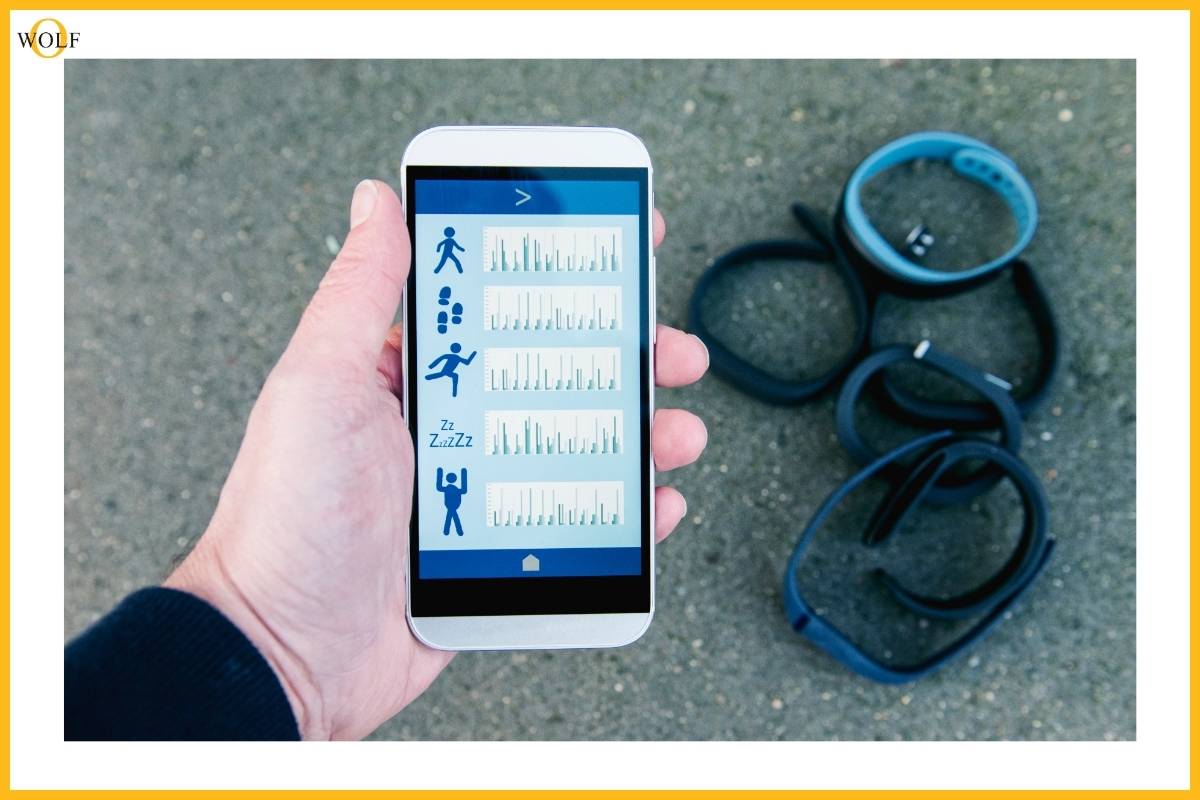In an era where health and fitness are paramount, the evolution of technology has brought forth a revolutionary ally: the fitness trackers. These wearable devices have transcended mere accessories to become indispensable tools for individuals striving to achieve their fitness goals. With their ability to monitor activity levels, track vital health metrics, and provide personalized insights, fitness trackers have transformed how we approach fitness and well-being.
The journey towards optimal fitness is often marked by challenges such as maintaining motivation, tracking progress accurately, and making informed adjustments to our routines. Fitness trackers address these challenges head-on by offering real-time feedback, setting achievable goals, and fostering a deeper understanding of our bodies’ responses to exercise and daily activities. They not only quantify our efforts but also inspire us to push further, celebrate milestones, and cultivate sustainable habits.
This blog delves into the myriad ways fitness trackers empower individuals to reach their fitness aspirations. From their role in encouraging daily movement and promoting overall health to their capacity for data-driven insights and community support, we explore how these devices serve as catalysts for personal growth and transformation. Whether you’re new to fitness or a seasoned enthusiast, the integration of a fitness tracker into your lifestyle represents a pivotal step towards embracing technology’s potential to enhance health, well-being, and performance.
1. Real-Time Activity Tracking and Motivation

One of the most compelling features of fitness trackers is their ability to monitor your daily physical activity in real time. From counting steps and tracking distance to estimating calories burned, these devices provide immediate feedback on your movements throughout the day. This real-time data not only keeps you informed but also serves as a powerful motivator to stay active and achieve your daily fitness targets.
For example, seeing your step count increase as you go about your day can encourage you to take the stairs instead of the elevator or go for a walk during your lunch break. This continuous feedback loop helps you make small adjustments to your routine to ensure you’re consistently progressing toward your fitness goals.
2. Setting and Achieving Personalized Goals
Fitness trackers allow you to set personalized goals based on your fitness level, preferences, and objectives. Whether you aim to reach a certain number of steps per day, achieve a specific calorie burn during workouts, or improve your sleep patterns, these devices enable you to track your progress toward these goals effortlessly.
Setting goals through your fitness tracker not only provides a clear roadmap but also enhances your sense of accountability. When you see your daily progress and how close you are to achieving your milestones, it reinforces your commitment to your fitness journey. This goal-setting feature transforms abstract aspirations into concrete achievements, motivating you to push yourself further and celebrate your successes along the way.
3. Monitoring Health Metrics for Optimal Performance

Beyond activity tracking, many advanced fitness trackers offer insights into vital health metrics such as heart rate variability, sleep quality, and even stress levels. These metrics provide a holistic view of your overall well-being and how your lifestyle choices impact your physical health.
For instance, tracking your resting heart rate over time can indicate improvements in cardiovascular fitness, while monitoring sleep patterns can highlight areas for improvement in sleep hygiene. By understanding these health metrics, you can make informed decisions about adjusting your exercise intensity, optimizing recovery periods, and enhancing your overall health and performance.
4. Encouraging a Balanced Approach to Fitness
Achieving fitness goals isn’t just about physical activity—it’s also about maintaining a balanced approach to health and wellness. Fitness trackers help you achieve this balance by offering features that promote overall well-being, such as reminders to hydrate, breathe mindfully, or take breaks during prolonged periods of inactivity.
These reminders ensure that you’re not only focused on physical exertion but also prioritizing recovery and self-care. By integrating these holistic practices into your daily routine, you can sustain your fitness efforts in the long term and prevent burnout or injuries.
5. Harnessing Data for Continuous Improvement
One of the most powerful aspects of fitness trackers is their ability to collect and analyze data over time. By monitoring trends in your activity levels, sleep patterns, and other health metrics, these devices empower you to identify patterns, recognize areas for improvement, and make data-driven adjustments to your fitness regimen.
For example, noticing fluctuations in your heart rate during different types of workouts can help you tailor your exercise routines to maximize cardiovascular benefits. Similarly, analyzing your sleep data may reveal habits or environmental factors affecting your sleep quality, prompting you to make changes that promote better rest and recovery.
6. Building Community and Accountability

Many fitness trackers offer social features that allow you to connect with friends, family, or fellow fitness enthusiasts. These communities provide a platform to share achievements, participate in challenges, and support each other’s fitness journeys.
Engaging with a community of like-minded individuals fosters a sense of camaraderie and accountability. Whether you’re cheering each other on during a virtual race or sharing tips for overcoming fitness plateaus, this social support network can provide the encouragement and motivation needed to stay committed to your goals.
Conclusion: Embracing the Future of Fitness
In conclusion, fitness trackers represent a transformative tool in pursuing fitness and well-being. By providing real-time activity tracking, personalized goal-setting, insights into health metrics, and a supportive community, these devices empower individuals to take control of their fitness journeys like never before. Whether you’re a seasoned athlete striving for peak performance or someone embarking on a healthier lifestyle, integrating a fitness tracker into your routine can accelerate your progress, enhance your motivation, and ultimately help you achieve your fitness goals.
As technology continues to evolve, so too will the capabilities of fitness trackers, offering even more advanced features and actionable insights to support your ongoing pursuit of health and wellness. Embrace the future of fitness with a tracker that aligns with your goals, and embark on a journey of continuous improvement, empowerment, and achievement. Your fitness goals are within reach—let your fitness tracker guide you toward success.
Did you find this article helpful? Visit more of our blogs! Business Wolf Magazine





